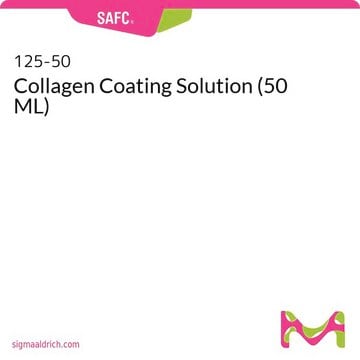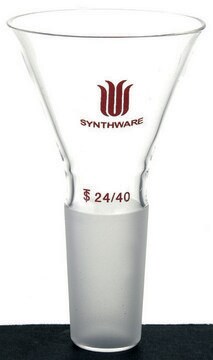308-05A
Human Internal Thoracic Artery Endothelial Cells: HITAEC, adult
Zaloguj sięWyświetlanie cen organizacyjnych i kontraktowych
About This Item
Kod UNSPSC:
41106514
NACRES:
NA.81
Polecane produkty
pochodzenie biologiczne
human intrathoratic artery (normal)
Poziom jakości
opakowanie
pkg of 500,000 cells
producent / nazwa handlowa
Cell Applications, Inc
tryb wzrostu
Adherent
kariotyp
2n = 46
morfologia
Endothelial
metody
cell culture | mammalian: suitable
powiązane choroby
diabetes; cardiovascular diseases
Warunki transportu
dry ice
temp. przechowywania
−196°C
Opis ogólny
Lot specific orders are not able to be placed through the web. Contact your local sales rep for more details.
HITAEC has been used to investigate oral pathogens travel through the body by infecting dendritic cells and inducing them to migrate through endothelial layers by causing upregulation of CXCR4 (Miles, 2014). To identify genes that make Human Internal Thoracic Arteries resistant to atherosclerosis, HITAEC and HCAEC (derived from the athero-prone human coronary arteries) were subjected to microarray analysis (Archaki, 2012). Twenty-nine genes were found to be expressed differently between HITAEC and HCAEC; one of them (TES) was shown to be downregulated in patients with coronary artery disease, resulting in increased monocyte adhesion, endothelial cell motility and transendothelial migration of monocytes.
HITAEC has been used to investigate oral pathogens travel through the body by infecting dendritic cells and inducing them to migrate through endothelial layers by causing upregulation of CXCR4 (Miles, 2014). To identify genes that make Human Internal Thoracic Arteries resistant to atherosclerosis, HITAEC and HCAEC (derived from the athero-prone human coronary arteries) were subjected to microarray analysis (Archaki, 2012). Twenty-nine genes were found to be expressed differently between HITAEC and HCAEC; one of them (TES) was shown to be downregulated in patients with coronary artery disease, resulting in increased monocyte adhesion, endothelial cell motility and transendothelial migration of monocytes.
Pochodzenie linii komórkowej
Artery
Zastosowanie
coronary artery bypass grafting, myocardial revascularization, endothelial cell motility, transendothelial migration, gene expression, contractile responses, receptor stimulation, cell relaxation, supply of oxygenated blood to chest wall and breasts,
Komponenty
Basal Medium containing 10% FBS & 10% DMSO
Uwaga dotycząca przygotowania
- 2nd passage, >500,000 cells in Basal Medium containing 10% FBS & 10% DMSO
- Can be cultured at least 10 doublings
Rutyna subkultury
Please refer to the HITAEC Culture Protocol.
Oświadczenie o zrzeczeniu się odpowiedzialności
RESEARCH USE ONLY. This product is regulated in France when intended to be used for scientific purposes, including for import and export activities (Article L 1211-1 paragraph 2 of the Public Health Code). The purchaser (i.e. enduser) is required to obtain an import authorization from the France Ministry of Research referred in the Article L1245-5-1 II. of Public Health Code. By ordering this product, you are confirming that you have obtained the proper import authorization.
This page may contain text that has been machine translated.
Kod klasy składowania
11 - Combustible Solids
Klasa zagrożenia wodnego (WGK)
WGK 3
Temperatura zapłonu (°F)
Not applicable
Temperatura zapłonu (°C)
Not applicable
Certyfikaty analizy (CoA)
Poszukaj Certyfikaty analizy (CoA), wpisując numer partii/serii produktów. Numery serii i partii można znaleźć na etykiecie produktu po słowach „seria” lub „partia”.
Masz już ten produkt?
Dokumenty związane z niedawno zakupionymi produktami zostały zamieszczone w Bibliotece dokumentów.
Nasz zespół naukowców ma doświadczenie we wszystkich obszarach badań, w tym w naukach przyrodniczych, materiałoznawstwie, syntezie chemicznej, chromatografii, analityce i wielu innych dziedzinach.
Skontaktuj się z zespołem ds. pomocy technicznej







